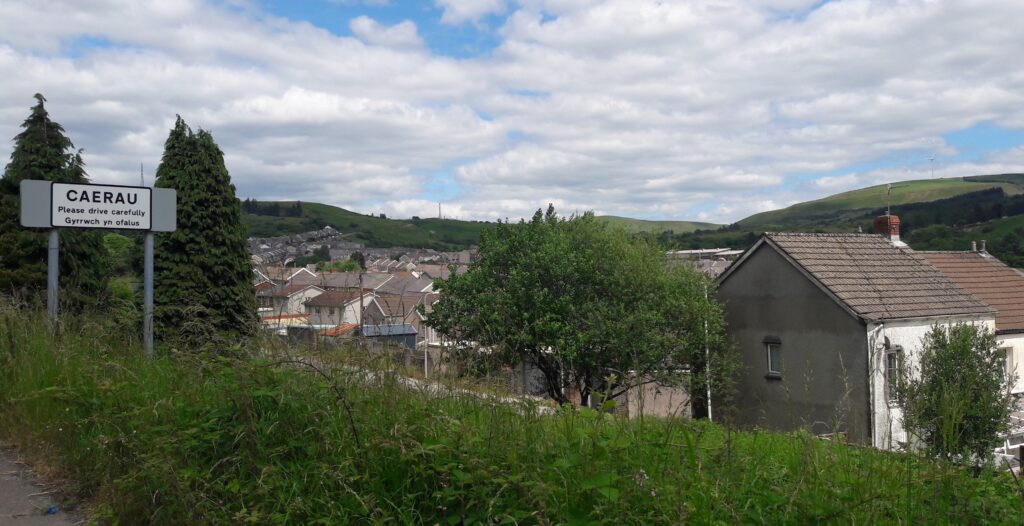Developing a dynamic understanding of household energy vulnerability: Insights from FLEXIS Social Scientists

Caerau landscape

Karen Henwood, Nick Pidgeon, Fiona Shirani and Chris Groves
The Research
Since 2017, the team has conducted annual rounds of qualitative interviews (a qualitative longitudinal design) with households in the South Wales Valleys community of Caerau, where a mine water based geothermal district heating project involving FLEXIS engineering expertise is planned.
This community scores highly on a number of measures of deprivation, and the FLEXIS Social Science data contains insights into how vulnerability to energy poverty and to inadequate provision of energy services is experienced by Caerau residents. Existing definitions of fuel poverty have been criticised for being too static, by implying that it is a condition a household can easily be defined as suffering from or not. Research suggests, on the contrary, that the underlying problem that can lead to fuel poverty is energy vulnerability, the propensity some households may have for moving into fuel poverty due to changes in housing, social, political or economic circumstances.
By taking a qualitative longitudinal approach, which enables the exploration of change over time, FLEXIS Social Science research is able to take this dynamic understanding of energy vulnerability even further.
Key Insights
FLEXIS Social Science research confirms that some of the conditions identified in the wider literature as giving rise to vulnerability do stem from characteristics of the energy system itself, but that others are not directly connected to energy provision. Examples of the latter are:
- poor housing quality in Welsh communities
- the socio-economic and cultural history of an area
- the quality of social relationships within them
More directly related to energy, the extent to which landlords are required through regulations to maintain the energy efficiency of properties is seen by interviewees as having a major influence on household energy expenditure and residents’ health and wellbeing more generally.
Relationships with utility companies are perceived as often being a source of additional vulnerability, thanks to the prevalence of prepayment meters (and associated higher tariffs) and how current regulations make switching suppliers difficult for less affluent consumers.
The interview data offers novel insights into the way participants were often supportive of the proposed mine water scheme, while also concerned about how it would address pressing needs in the community.
Everybody would love it if it was cheap enough. The cost to the environment is good, it’s better for us. We’re not burning fossil fuels. We’re not, to keep your house warm, we’re using something that we have heritage in, it’s providing but at what cost? That will be the bottom line for everybody.
(Terry, 60s, Interview 2)
The FLEXIS Social Sciences team, led by Professors Karen Henwood and Nick Pidgeon, are exploring the energy challenges faced by Welsh communities where FLEXIS demonstrations are planned. Insights from this research will help FLEXIS and policy stakeholders understand the conditions which give rise to energy poverty in South Wales communities, and to anticipate what benefits and potential risks the transition to a more flexible energy system, based on renewables might bring for such communities.
Our participants’ concerns reflected their sense of the community’s perceived vulnerability to rising costs and other sources of disruption arising from wider social change – with examples from the past being local economic decline following the closure of local collieries, and current examples including worries about the introduction of Universal Credit. Participants frequently recounted examples of how people in Caerau helped one another, which was seen as a fundamental part of being a Welsh Valleys ex-mining community. The mining heritage continued to be important and making use of the mines through a new renewable energy scheme was something participants overwhelmingly felt positive about:
It’s something, because it’s in our, in our genes, isn’t it, like our grandparents went down there, I think it should be used in respect for them as well, so that’s using it for something, isn’t it? … I think it’s brilliant.
(Dawn, 40s, Interview 1)
Finally, the research shows how people’s experiences with first-generation smart meters appear to have led many to be somewhat sceptical about the benefits of installing new smart technologies in households. This has policy implications for wider rollout of smart technology, particularly as part of schemes targeted at vulnerable consumers. Consequently, FLEXIS Social Science research is playing an important role in the ongoing mine water scheme development by providing insights into the views and experiences of local residents.
Impact and next steps
FLEXIS Social Science research in Caerau has highlighted the importance of considering vulnerable consumers in energy system transitions in order to avoid worsening the situation of those in already precarious positions. By taking a qualitative longitudinal approach, where the same participants are revisited on a number of occasions, the research has been able to provide new insights into how people’s relationships to energy changes in relation to alterations in their life circumstances, which is important for providing a more dynamic understanding of energy demand.
Data from the research has already been used to contribute to Welsh Government’s Better Energy Futures project, part of the Smart Living programme, in collaboration with the Energy Systems Catapult. Evidence from FLEXIS Social Science research in Caerau was also cited in the recent National Assembly Wales report Fuel Poverty in Wales (April 2020) in relation to the challenges of relying on people self identifying as vulnerable to trigger interventions. FLEXIS Social Scientists are designing further waves of interviews in Caerau to continue to explore the role of energy in local people’s lives and to help inform further development of the mine water scheme by Bridgend County Borough Council and partners.


